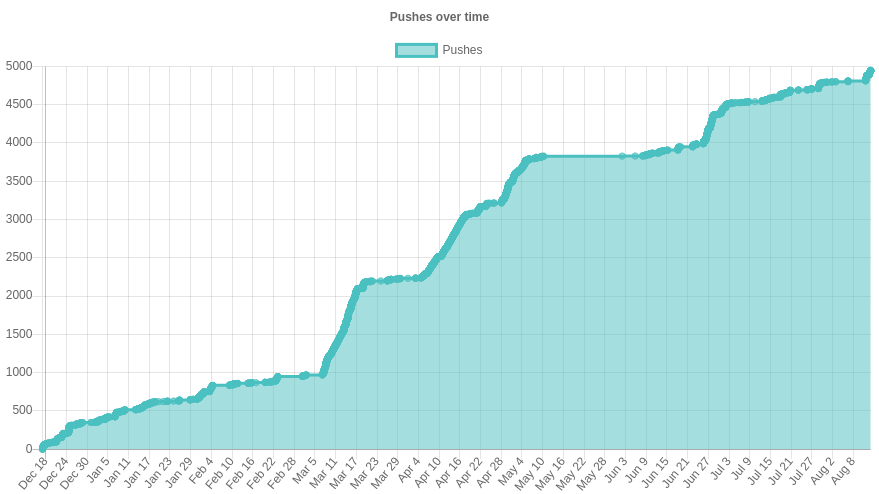Silver Platter Batch Mode
Background
Silver-Platter makes it easier to publish automated changes to repositories. However, in its default mode, the only option for reviewing changes before publishing them is to run in dry-run mode. This can be quite cumbersome if you have a lot of repositories.
A new “batch” mode now makes it possible to generate a large number of changes against different repositories using a script, review and optionally alter the diffs, and then all publish them (and potentially refresh them later if conflicts appear).
Example running pyupgrade
I’m using the pyupgrade example recipe that comes with silver-platter.
---
name: pyupgrade
command: 'pyupgrade --exit-zero-even-if-changed $(find -name "test_*.py")'
mode: propose
merge-request:
commit-message: Upgrade Python code to a modern version
And a list of candidate repositories to process in candidates.yaml.
---
- url: https://github.com/jelmer/dulwich
- url: https://github.com/jelmer/xandikos
With these in place, the updated repositories can be created:
$ svp batch generate --recipe=pyupgrade.yaml --candidates=candidate.syml pyupgrade
The intermediate results
This will create a directory called pyupgrade, with a clone of each of the repositories.
$ ls pyupgrade
batch.yaml dulwich xandikos
$ cd pyupgrade/dulwich
$ git log
commit 931f9ffb26e9143c56f20e0b85e6ddb0a8eee2eb (HEAD -> master)
Author: Jelmer Vernooij <jelmer@jelmer.uk>
Date: Sat Feb 25 22:28:12 2023 +0000
Run pyupgrade
diff --git a/dulwich/tests/compat/test_client.py b/dulwich/tests/compat/test_client.py
index 02ab6c0a..9b0661ed 100644
--- a/dulwich/tests/compat/test_client.py
+++ b/dulwich/tests/compat/test_client.py
@@ -628,7 +628,7 @@ class HTTPGitServer(http.server.HTTPServer):
self.server_name = "localhost"
def get_url(self):
- return "http://{}:{}/".format(self.server_name, self.server_port)
+ return f"http://{self.server_name}:{self.server_port}/"
class DulwichHttpClientTest(CompatTestCase, DulwichClientTestBase):
...
There is also a file called batch.yaml that describes the pending changes:
1 2 3 4 5 6 7 8 9 10 11 12 13 | name: pyupgrade work: - url: https://github.com/dulwich/dulwich name: dulwich description: Upgrade to modern Python statements commit-message: Run pyupgrade mode: propose - url: https://github.com/jelmer/xandikos name: xandikos description: Upgrade to modern Python statements commit-message: Run pyupgrade mode: propose recipe: ../pyupgrade.yaml |
At this point the changes can be reviewed, and batch.yaml edited as the user sees fit - they can remove entries that don’t appear to be correct, edit the metadata for the merge requests, etc. It’s also possible to make changes to the clones.
Once you’re happy, publish the results:
$ svp batch publish pyupgrade
This will publish all the changes, using the mode and parameters specified in batch.yaml.
batch.yaml is automatically stripped of any entries in work that have fully landed, i.e. where the pull request has been merged or where the changes were pushed to the origin.
To check up on the status of your changes, run svp batch status:
$ svp batch status pyupgrade
To refresh any merge proposals that may have become out of date, simply run publish again:
svp batch publish pyupgrade









